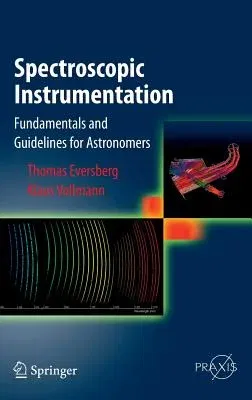Thomas Eversberg
(Author)Spectroscopic Instrumentation: Fundamentals and Guidelines for Astronomers (2015)Hardcover - 2015, 28 November 2014

Qty
1
Turbo
Ships in 2 - 3 days
In Stock
Free Delivery
Cash on Delivery
15 Days
Free Returns
Secure Checkout

Part of Series
Springer Praxis Books / Astronomy and Planetary Sciences
Part of Series
Springer Praxis Books
Part of Series
Astronomy and Planetary Sciences
Print Length
653 pages
Language
English
Publisher
Springer
Date Published
28 Nov 2014
ISBN-10
3662445344
ISBN-13
9783662445341
Description
Product Details
Authors:
Book Edition:
2015
Book Format:
Hardcover
Country of Origin:
NL
Date Published:
28 November 2014
Dimensions:
23.39 x
15.6 x
3.66 cm
Genre:
Science/Technology Aspects
ISBN-10:
3662445344
ISBN-13:
9783662445341
Language:
English
Location:
Berlin, Heidelberg
Pages:
653
Publisher:
Series:
Weight:
1129.44 gm